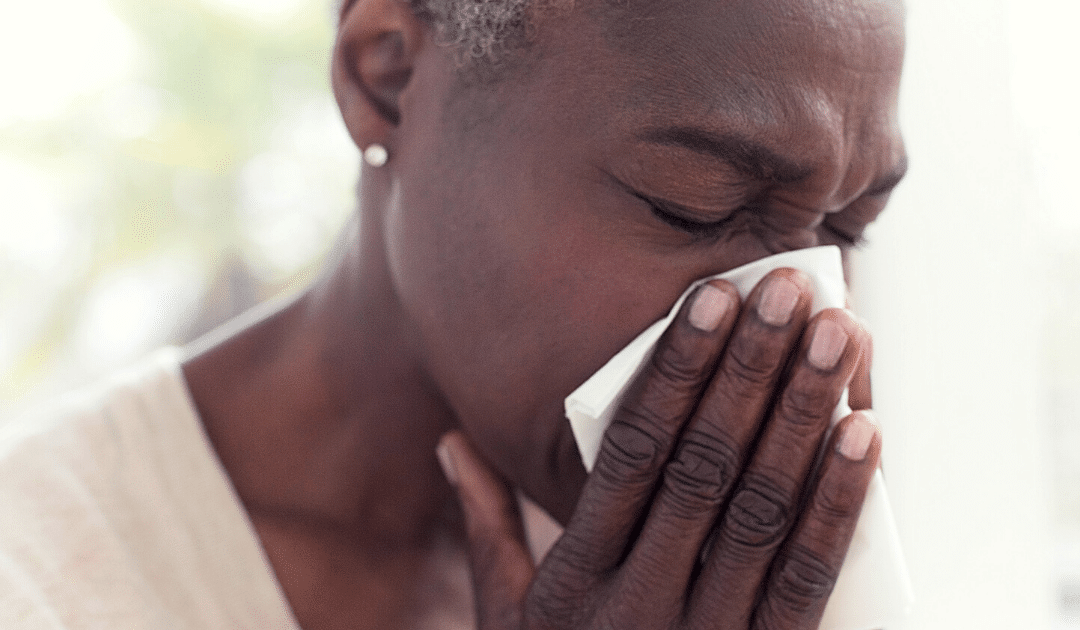As the weather warms up, seasonal allergies can collide with everyday household allergens to create the perfect storm of misery for allergy sufferers. If you or your family members are allergy-prone, there are steps you can take to minimize allergens throughout your home and throughout pollen season.
These 11 tips can help vastly improve your home’s indoor air quality, helping prevent asthma flare-ups, new cases of mold allergies, and the need for bulk purchases of tissues and antihistamines!
- Clean well, clean often. A clean house is a healthier house. Regular, thorough cleaning of all surfaces and furnishings will keep allergen counts down, prevent mold and decrease pet dander. Besides the regular surfaces, keep in mind too that clearing out clutter is a big factor in controlling dust. One more reason to get rid of extra stuff!
- Vacuum regularly. Consistent vacuuming is a powerful weapon in removing allergens, toxins, mold spores, mites, and other offenders. Depending on your household’s activity levels and allergy sensitivity, you may need to vacuum as often as every other day or so. Use a HEPA filter in your vacuum and change it often.
- Control dust mites. These critters thrive in bedding and linens that aren’t cleaned often enough. Keep them in check by washing bedding, uncovered pillows, and kids’ stuffed toys in hot water each week, and dry with high heat. Zippered allergen-resistant covers for mattresses, pillows, and box springs are especially effective against allergy attacks. Avoiding heavy drapes, wall-to-wall carpet and overstuffed fabric furniture also control mites, as does humidity-regulating air-conditioning.
- Limit indoor greenery. House plants add beauty, but many times they can harbor mold. Try to cull out all but your favorites, and for the plants you do keep, lay down aquarium gravel on top of the soil to discourage mold growth.
- Get an air filter or purifier. Air cleaning devices can significantly improve indoor air quality (if you’re on the west coast, these are a lifesaver during wildfire season). Go for high-quality air filters such as HEPA or certified asthma/allergy ones. Choose from stand-alone filters or those designed to be installed in your central air system – or better yet, both!
- Stay ahead of pet dander. Keeping up with a vacuuming and cleaning schedule will help limit dander. You can also cover vents with material such as cheesecloth to catch circulating dander. Regularly wash and dry pet beds and toys. Bathe pets weekly and wear a mask when grooming them. And finally, if you’re able to resist the puppy-dog eyes, try not to let pets sleep in bedrooms.
- Keep pollen out. Keep doors and windows closed and use the air conditioning to keep pollen, dust, and other toxins outside. Change air filters frequently, especially during pollen season.
- Prevent mold. Damp areas breed mold spores, which then travel throughout your home. Reduce moisture in the bathroom by running a fan during and after showers, minimizing shower time, and making sure wet clothes, towels, and bathing suits are hung or dried. To further limit the spread of mold, use dehumidifiers and/or air conditioning, use humidity monitors if needed, limit the number of houseplants and fix all leaks.
- Control pests. Prevent cockroaches and mice with traps or hire a professional exterminator. Repel them in the first place by always putting garbage, food waste, and recycling into containers with an insect-proof lid and emptying bins daily. Keep the kitchen free of crumbs and food scraps. Store pet food in sealed containers. Seal cracks and other possible pest entryways.
- Dehumidify. Use a dehumidifier in especially damp areas such as the basement.
- Adopt a no-smoking policy. Do not allow smoking inside your home. Besides a range of serious health effects, tobacco smoke can also cause asthma – not just for the smoker but for anyone exposed to secondhand smoke.
The bad news about allergies? They will always be around us. The good news? We can do something about them! A thorough spring cleaning can get you on the right track (not sure where to start? – check out our tips here!). After that, consistently following the 11 steps above will help reduce allergens and improve your indoor air quality all year round – which will in turn keep you and your family healthier and safer for years to come.
This article is furnished by California Casualty, providing auto and home insurance to educators, law enforcement officers, firefighters, and nurses. Get a quote at 1.866.704.8614 or www.calcas.com.
- Graduation – When to Remove Your Child from Your Auto Policy - May 18, 2023
- How to Prevent Catalytic Converter Theft - May 17, 2023
- How Much Does Home Insurance Cost? - May 17, 2023

